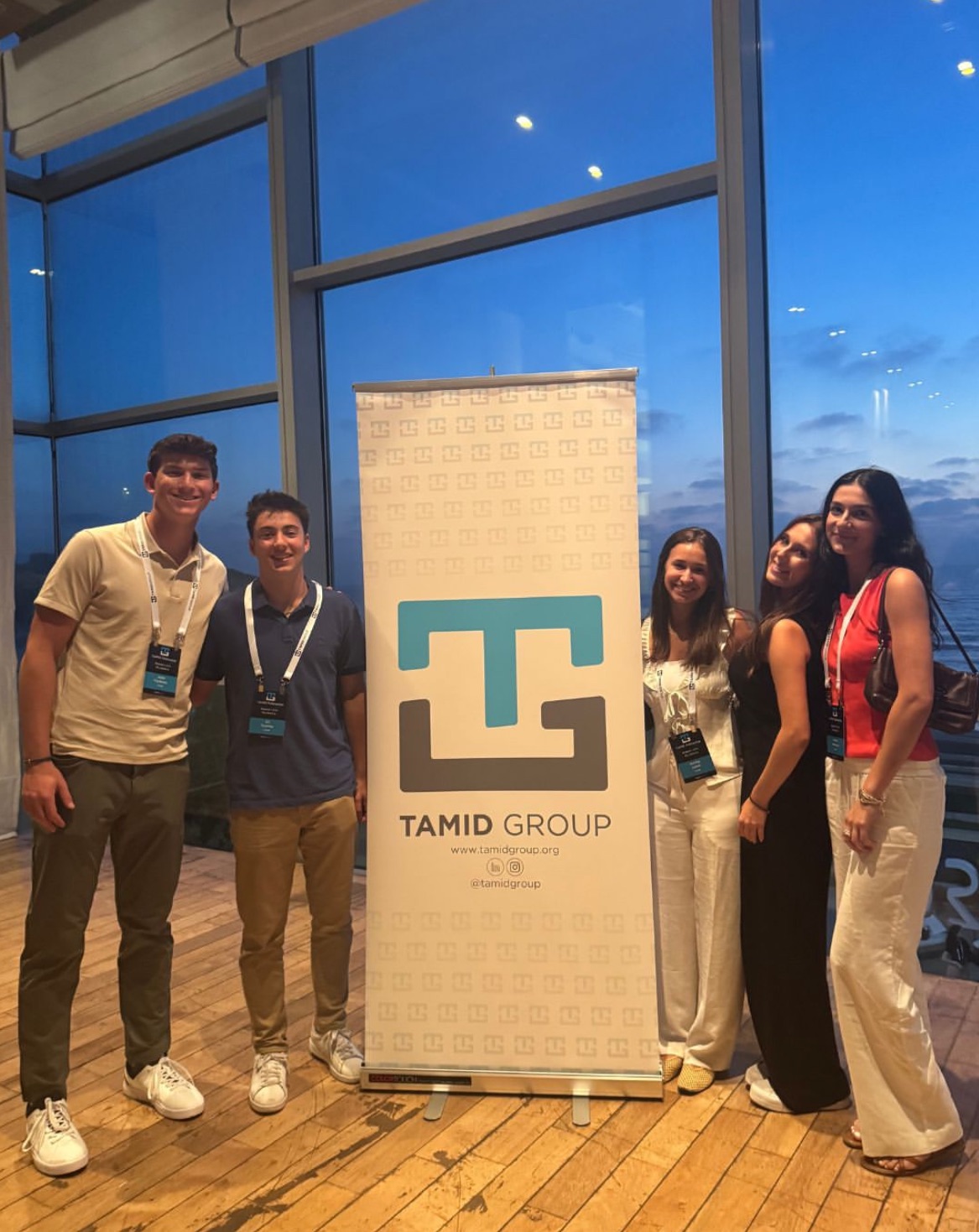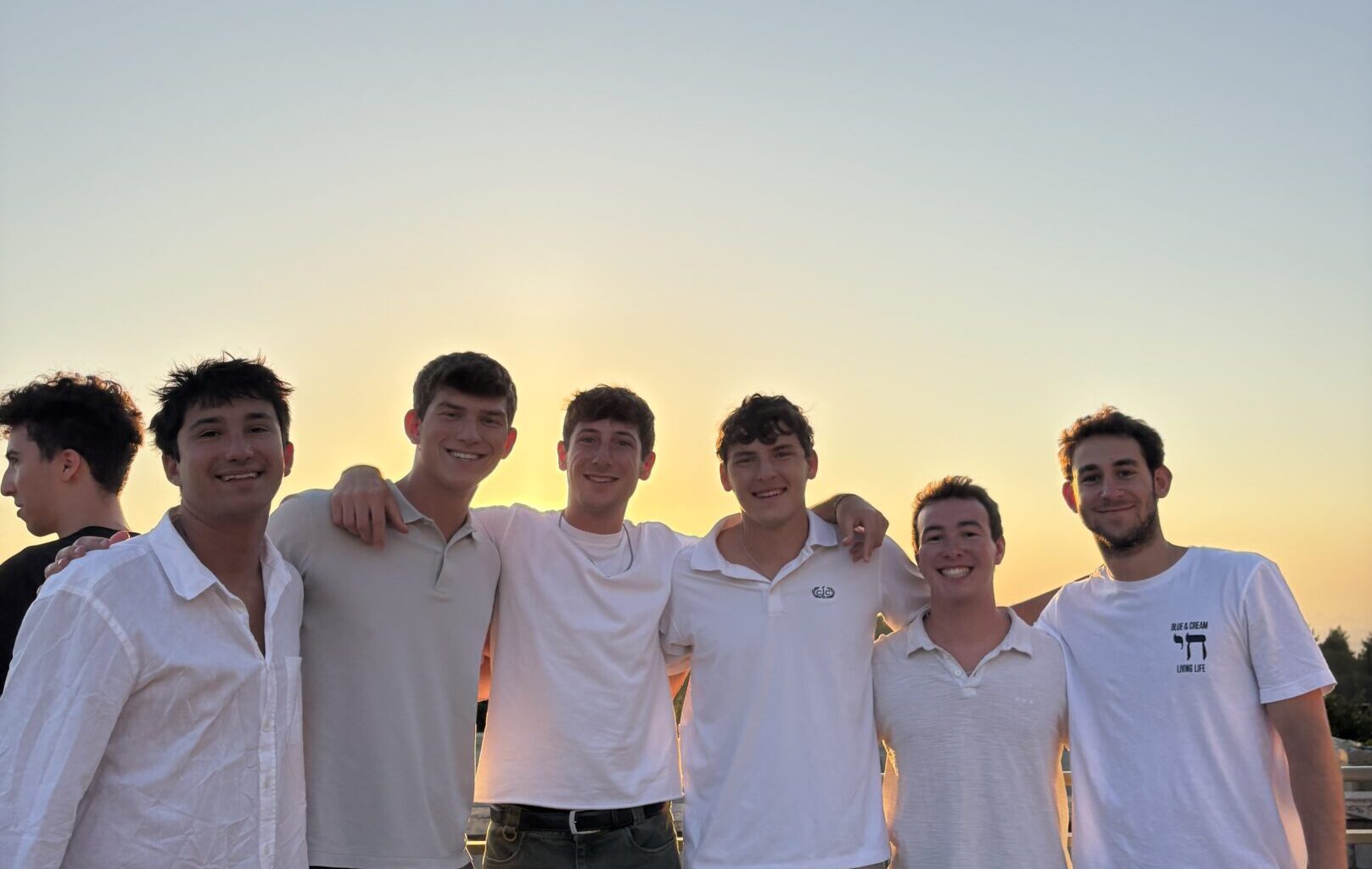Wailing sirens echoed through Tel Aviv in late June, sending shockwaves through an outdoor venue of more than 100 people — Israelis and Americans alike.
As their phones flashed with missile alerts, the crowd broke into chaos. People ran through the streets, searching for the nearest bomb shelter.
Around 3:45 a.m. it became clear: the sirens were warning of an attack on Israel. Americans frantically tried to find a way home, while many Israelis continued partying in the streets.
For them, this was nothing unusual.
With few Ubers available in the middle of the night, people were stranded. Israelis began offering rides to American students, reassuring them, “This is Israel. It’s just what we do.”
Many Americans travel to Israel to visit family or participate in Birthright, a free 10-day educational trip that helps young Jewish adults connect with their heritage and the land of Israel.
Several Lehigh students traveled there through Tamid, a fellowship program offering experience in Israel’s economy by consulting with startups and conducting capital market research.
 Lehigh students participating in the Tamid Fellowship pose together during their summer program in Israel. The experience offered opportunities for cultural connection and personal growth amid the uncertainty unfolding around them. (Courtesy of Jedd Frydman)
Lehigh students participating in the Tamid Fellowship pose together during their summer program in Israel. The experience offered opportunities for cultural connection and personal growth amid the uncertainty unfolding around them. (Courtesy of Jedd Frydman)
What began as a summer full of exploration and connection soon became a test of resilience. Students part of Birthright and Tamid found themselves confronting the realities of life in a country at war.
Jedd Frydman, ‘27, who first went to Israel for Birthright before staying for Tamid, experienced that night of chaos firsthand.
He said electric scooters are popular in Israel, so he and his friends decided to scooter back to their apartment. The ride was long, so they stopped on the side of a highway, hoping a public bus might still be running.
“We tapped on the glass, explained our situation to the driver, and told him we were American just trying to get home,” Frydman said. “(The driver) said, ‘I just finished my route for the night, I was going to bring the bus back, but I’ll drive you guys home.’ So we got on the bus with our scooters, and he literally drove this massive public transport bus to our apartment.”
During Birthright, Frydman explored the country — Tel Aviv, Jerusalem, the north and south — and said it allowed him to connect deeply with the land.
Throughout the second half of the trip, five or six soldiers joined his group. Frydman said he became close friends with many of them who were his age. In Israel, the majority of citizens over 18 who are Jewish, Druze or Circassian must serve in the Israel Defense Forces. Men serve a minimum of 32 months, and women serve at least two years.
After completing Birthright, Frydman joined the Tamid group, working in an office with Israeli companies four days a week until the night of the sirens. The morning after, Tamid’s staff knocked on students’ doors, telling them they were moving to a hotel on Tel Aviv’s beach.
Frydman said the group had to shelter three or four times a night.
“You’d get an alert on your phone saying missiles were incoming,” he said. “Since Iran’s pretty far, you’d get 15 minutes to prepare. You’d wake up, get dressed and then hear sirens. That’s when you’d go.”
He said the hotel shook when a missile landed within a mile. Without bomb shelters, students ran down 13 flights of stairs to the basement each time.
Annie Sherman, ‘27, a member of Tamid, lived in an apartment in Tel Aviv with 21 other girls. She said when they ran to the bomb shelter at the complex she was staying in, it wouldn’t open.
“None of us knew what to do,” Sherman said. “Some ran down to the parking garage because you need to get underground. Some went back to our apartment and were hiding at the bottom of the stairs. That went on for hours.”
Days later, Tamid relocated students to Eilat on Israel’s southern tip near Egypt and Jordan where they stayed until leaving the country.
Sherman said in Tel Aviv it took around 10 minutes for rockets to reach the city, but in Eilat, where bombs were closer, they had only about a minute to find shelter after an alert.
Frydman said it’s sad Israelis have grown accustomed to this way of life. He said witnessing the conflict firsthand brought him a sense of compassion and empathy.
“For us we have grown up with active shooter drills, for them it’s bombing drills,” Frydman said. “It puts things into perspective.”
After multiple relocations, students were told to pack up and board a cruise to Cyprus and Rome.
Frydman said it was sad to move and leave the 16 people who shared his apartment as they were just getting to know each other, and no one wanted to leave.
Ellee Segal, ‘27, also participated in the Tamid Fellowship Program. She said the program’s supervisors handled the crisis as best they could and worked tirelessly to get everyone home safely.
Segal said the program managed to arrange the cruise on very short notice, working tirelessly for days to ensure everyone’s safety.
When Israel became safe to return to, many Lehigh students went back to complete the program. Sherman said she felt a stronger pull to return because of what she’d experienced, which gave her a new perspective on the conflict.
“In America, we don’t have to worry about what Israelis and people in other Middle Eastern countries constantly think about,” Sherman said. “We were taken to the Gaza strip and got to hear firsthand accounts of why the war started, the Hamas and Israel conflict. It gave me a new perspective, seeing the impact on daily lives of Israelis and Palestinians.”
She also said the program included various speakers, including an Israel Defense Forces soldier, who had lost his arm and his leg in combat. She said much of the program focused on hope and perseverance of the Israeli people.
“They were so happy we came back,” Sherman said. “It was definitely interesting how even though they have experienced all of this, they still think we’re the resilient ones.”

